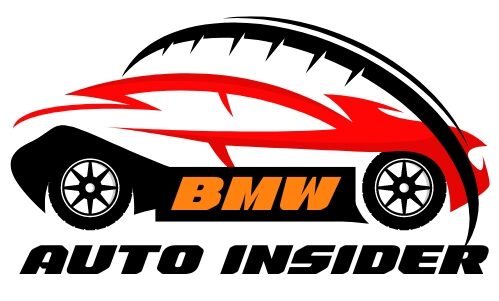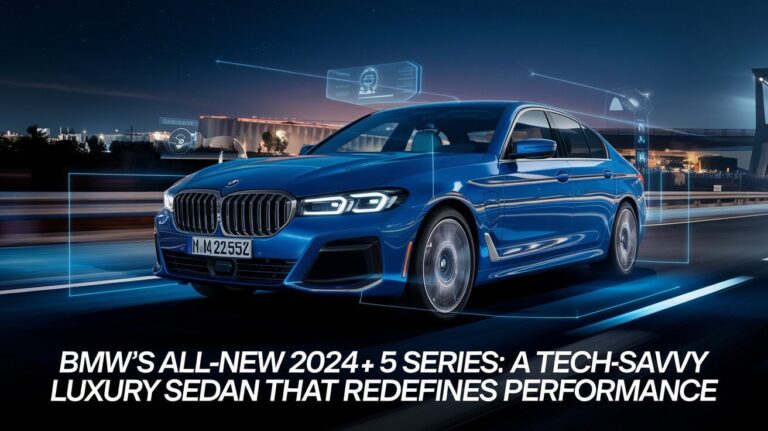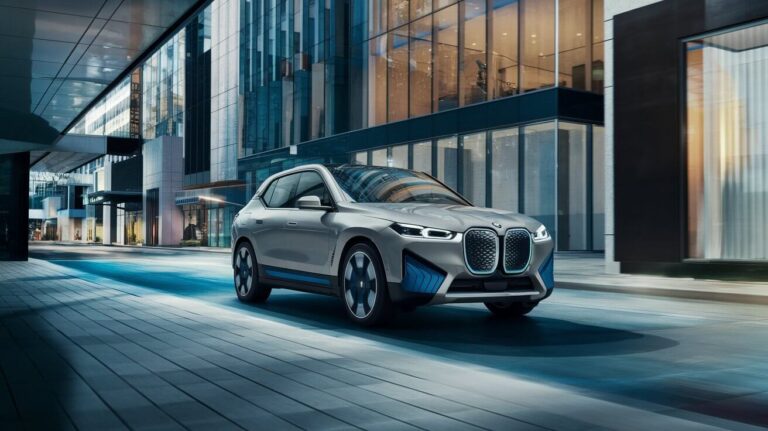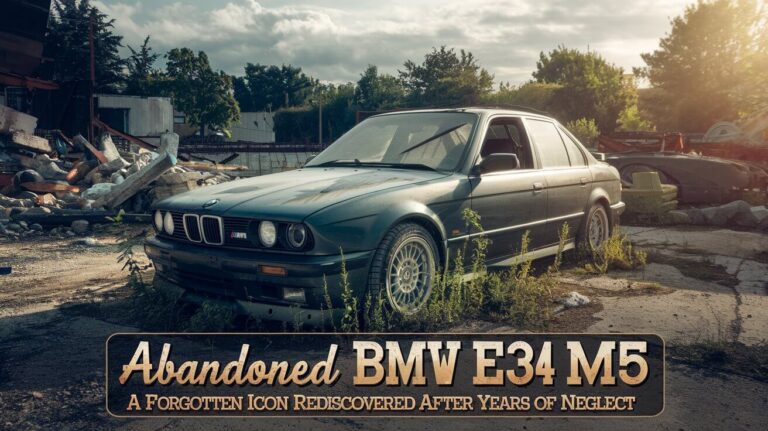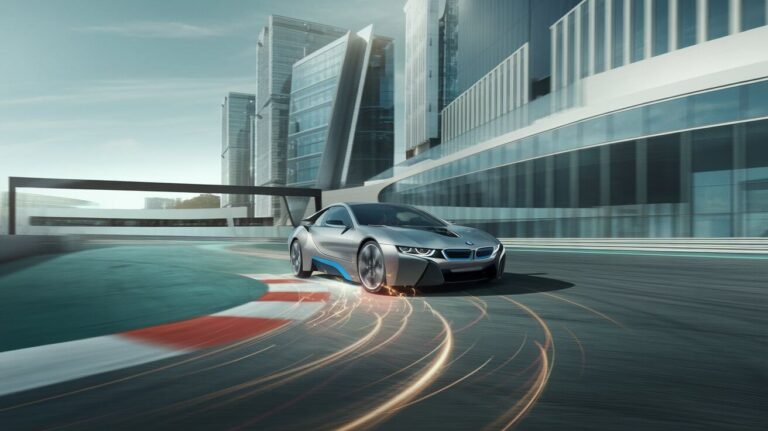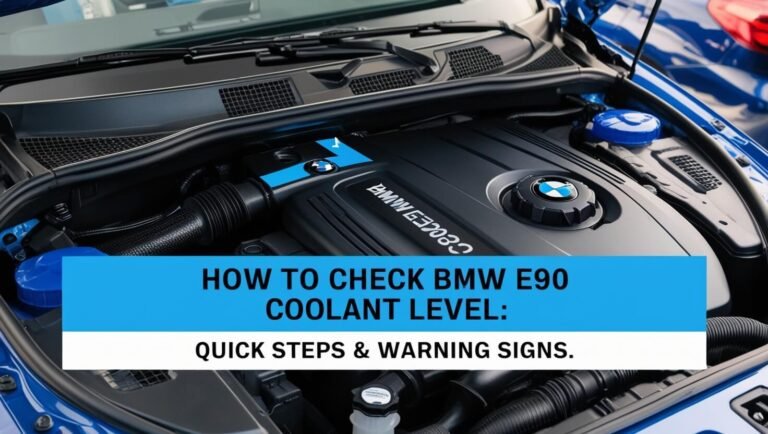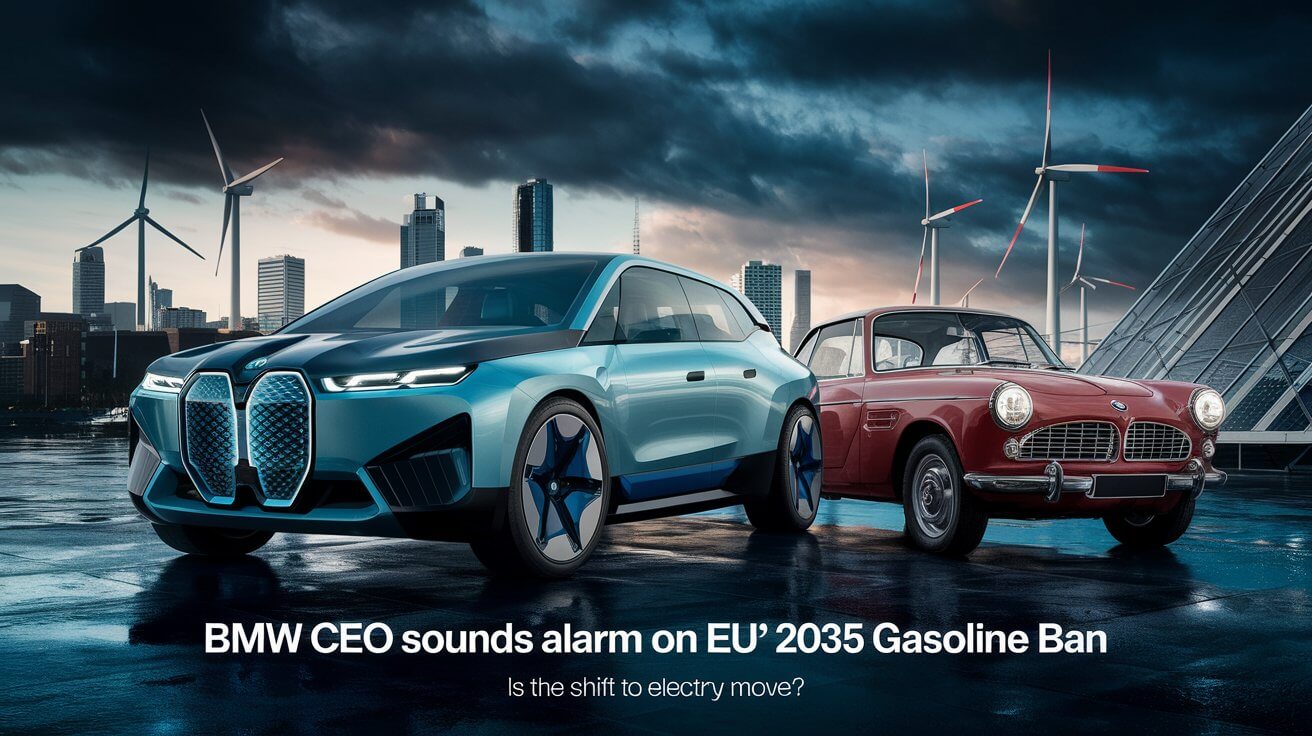
Is Europe ready for a complete ban on gasoline vehicles? Could the shift to electric cars make Europe more dependent on foreign suppliers? How will this impact the future of the European auto industry?
So we are going, dive deep into the ongoing debate surrounding the European Union’s (EU) proposed ban on gasoline vehicles by 2035 and why BMW’s CEO believes this might be more dangerous than beneficial. By the end, you’ll understand not only the potential risks but also the opportunities, giving you a balanced perspective on this hotly debated issue.
What Is the EU 2035 Gasoline Ban?
The European Union has set an ambitious target: by 2035, the sale of new gasoline and diesel cars will be banned across all member states. This is part of a larger plan to reduce carbon emissions and combat climate change, pushing the continent toward a cleaner, greener future.
Why This Matters:
- The automotive sector is one of the biggest contributors to carbon emissions, making this shift crucial for Europe to meet its climate goals.
- Electric vehicles (EVs) are considered a key solution, offering zero-emission transportation and aligning with the EU’s 2050 carbon neutrality targets.
However, transitioning an entire continent’s fleet of vehicles from fossil fuels to electric in just over a decade is no small task. And as you’ll soon see, not everyone agrees it’s the right move.
Why Is BMW’s CEO Worried?
BMW’s CEO, Oliver Zipse, recently voiced his concerns about the EU’s gasoline ban, stating that this plan could severely impact the European automotive industry. His key worry? The rapid shift to electric vehicles could leave Europe overly dependent on Chinese battery manufacturers.
Key Points:
- Supply Chain Dependence: The majority of the world’s lithium-ion batteries, which power EVs, are produced in China. While European companies are trying to catch up, they lag far behind.
- Economic Risks: Zipse argues that if Europe becomes reliant on imported batteries, it could lead to higher costs, reduced innovation, and potential vulnerabilities in the supply chain.
- Job Losses: Shifting from traditional car manufacturing to electric will require retraining workers. If managed poorly, this could lead to significant job losses in regions heavily dependent on gasoline vehicle production.
The Shift to Electric Cars: A Closer Look
Let’s break down the transition from gasoline to electric cars and why it’s such a significant shift. Electric vehicles (EVs) are powered by batteries, eliminating the need for gasoline. This results in:
- Zero tailpipe emissions, significantly reducing pollution.
- Lower running costs, as electricity is generally cheaper than gasoline.
- Fewer mechanical parts, reducing the need for maintenance.
But it’s not all smooth sailing.
Key Challenges:
- Battery Production: Producing the batteries for EVs is resource-intensive. Rare earth minerals like lithium, cobalt, and nickel are crucial, and their extraction has significant environmental and geopolitical implications.
- Charging Infrastructure: Europe still needs a massive expansion of its EV charging network to meet the demand. Without sufficient chargers, consumers may be hesitant to switch to electric.
- Affordability: While EVs are becoming more affordable, many models remain out of reach for the average consumer, especially in regions with lower incomes.
How Could Dependence on China Affect Europe?
China is the world’s largest manufacturer of lithium-ion batteries, and its dominance is concerning for European automakers. If Europe shifts entirely to electric, it will likely need to import most of its batteries from China—at least in the short term.
Potential Risks:
- Supply Chain Disruptions: Any political or economic conflict between Europe and China could disrupt the battery supply chain, leading to production delays or cost spikes.
- Limited Innovation: Relying heavily on imported technology could stifle innovation within the European automotive industry.
- Price Increases: If demand for batteries outstrips supply, prices could skyrocket, making EVs less affordable for consumers.
In short, while the switch to EVs is necessary for environmental reasons, Europe’s dependence on Chinese batteries could pose significant economic risks.
What Alternatives Exist?
BMW’s CEO has suggested that while the EU’s gasoline ban is well-intentioned, it may not be the only solution. He advocates for a mixed approach, where electric vehicles are part of the solution, but not the sole focus.
Alternatives to Consider:
- Hydrogen-powered vehicles: BMW is already working on hydrogen fuel cell technology, which offers a clean alternative to both gasoline and electric vehicles. Hydrogen cars emit only water vapor and could potentially be refueled faster than EVs.
- Hybrid vehicles: Plug-in hybrids offer a compromise, allowing drivers to use electric power for shorter trips while retaining the flexibility of a gasoline engine for longer distances.
- Sustainable gasoline alternatives: Synthetic fuels and biofuels could provide a greener option for existing gasoline vehicles, reducing emissions without requiring a complete overhaul of Europe’s car fleet.
These alternatives could reduce Europe’s dependence on imported batteries while still contributing to lower emissions.
Common Concerns About the 2035 Gasoline Ban
Will electric cars be affordable by 2035?
While prices are expected to drop as technology improves, EVs may still be more expensive than gasoline vehicles. However, government incentives and lower running costs could make them more attractive.
What happens to existing gasoline cars?
The 2035 ban applies to new car sales only. If you own a gasoline car before the ban, you can still drive it, though fuel prices and maintenance costs may rise over time.
How will the ban affect jobs in the automotive industry?
While some jobs may be lost in traditional car manufacturing, new opportunities will arise in EV production, battery manufacturing, and charging infrastructure development. Retraining will be essential to help workers transition.
The EU’s 2035 gasoline ban is a bold step toward a more sustainable future, but it’s not without its challenges. BMW’s CEO has raised important questions about the potential risks, especially Europe’s dependence on Chinese batteries. However, with careful planning, innovation, and a mixed approach that includes alternatives like hydrogen and hybrid vehicles, Europe can navigate this transition successfully.
What do you think about the 2035 ban? Share your thoughts in the comments below!
